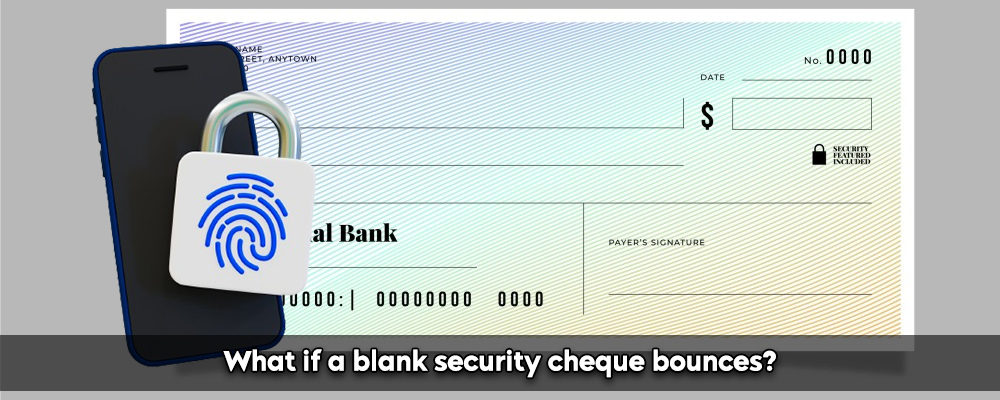There are more fraudulent and fake cases than real ones nowadays. Cheque bounce lawsuits filed under the virtue of Section 138 of the Negotiable Instruments Act 1881 have inundated and overwhelmed the majority of Negotiable Instruments Act cases. It is common for the accused to suffer consequences for giving the complainant a security cheque.
To initiate a business or provide a loan, many companies or lenders maintain a blank security cheque in a broad chain of operations. Due to partially outstanding debts or EMI, there are several situations in India where people misuse cheques and report a fake cheque bounce.
Need A Legal Advice
The internet is not a lawyer and neither are you. Talk to a real lawyer about your legal issue

Blank Security Cheque: About
- A security cheque without a date or payee is commonly referred to as an undated or open cheque or blank security cheque. This particular type of cheque is often utilized as collateral or security in several kinds of transactions, involving loans, company transactions, as well as contracts. The payee feels more confident about the transaction since the cheque is blank and the recipient can fill in the information later.
- However, a cheque that is provided as collateral for a financial transaction is not always a worthless piece of paper.” A cheque issued as security does not absolve it of the offense specified in Section 138 of the Negotiable Instruments Act of 1881 (the “NI Act”).
Blank Security Cheque Bounce: Punishment
- The court will hold a hearing and issue a summons after receiving the complaint, an affidavit, and any relevant paperwork. You might have to deal with the consequences if you don’t act in a timely manner.
- The Negotiable Instruments Act of 1881, was amended in 1988, and Section 138 was added, making it illegal to bounce cheques. The punishment for this offense is two years in imprisonment, a fine equal to twice the value of the originally written cheque, or both. When there are repeated instances of a bounced cheque, even the banks are entitled to suspend the cheque book service and liquidate the account.
- The primary goal of adding Section 138 to the act through an amendment in 1988 was to foster confidence in the reliability of banking operations and the ability to do business using negotiable instruments in order to stop the drawer from issuing dishonest cheques.
How to Save Yourself from a Blank Security Cheque Bounce?
Given as Security, the Cheque was Misused
You have a pair of choices in this regard: either ask the complaint to present an account statement showing all of your payments made on the debt. A statement presented alone will demonstrate that the cheque was erroneous as there was no outstanding obligation at the time it was written. If the complainant forgets to bring the statement of accounts, you may additionally include proof of payment.
The Amount on the Cheque Exceeds the total Amount Owed
In this case, you have the option to request a statement of accounts once more. If the amount on the cheque exceeds the outstanding debt, you may also pursue a defense by posing questions about the unpaid debt.
There Was Never a Loan Due or Taken
If the issued cheque was misused in this circumstance, the court may impose severe penalties on you. In this situation, filing a police report will be beneficial since it can halt payments and file a stolen complaint. You might refer to the complainant’s ITR or loan payment documentation.
Security cheques are treated by Indian courts like regular cheques, prima facie. This means that if the accused is initially charged under section 139 of the NI Act, they must first establish a plausible defense explaining why the cheque was given. While the complaint’s argument should center on a legally enforceable obligation, in the event that a blank or undated cheque is issued, the complainant must persuade the court that a legally enforceable debt in the same amount existed on the date the cheque was issued.
One can talk to lawyers from Lead India for any kind of legal support. In India, free legal advice online can be obtained at Lead India. Along with receiving free legal advice online, one can also ask questions to the experts online free through Lead India.





 Talk to a Lawyer
Talk to a Lawyer